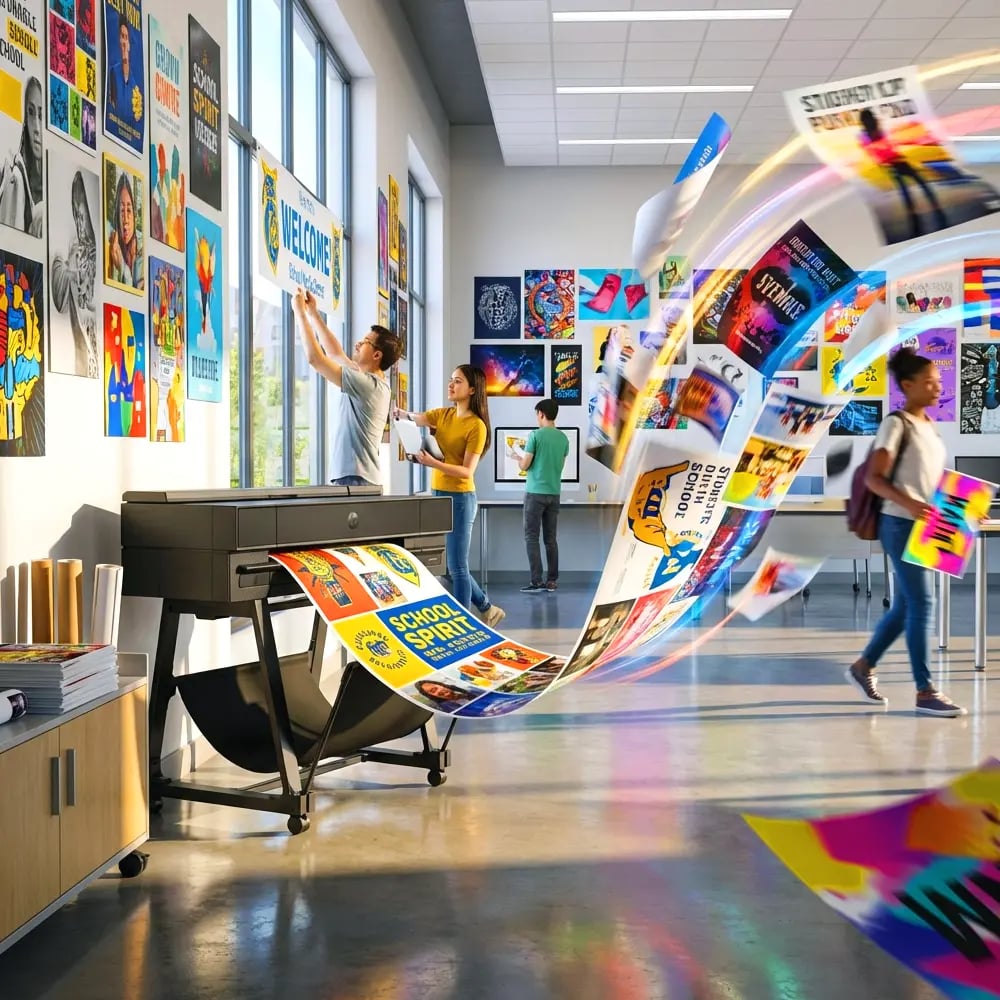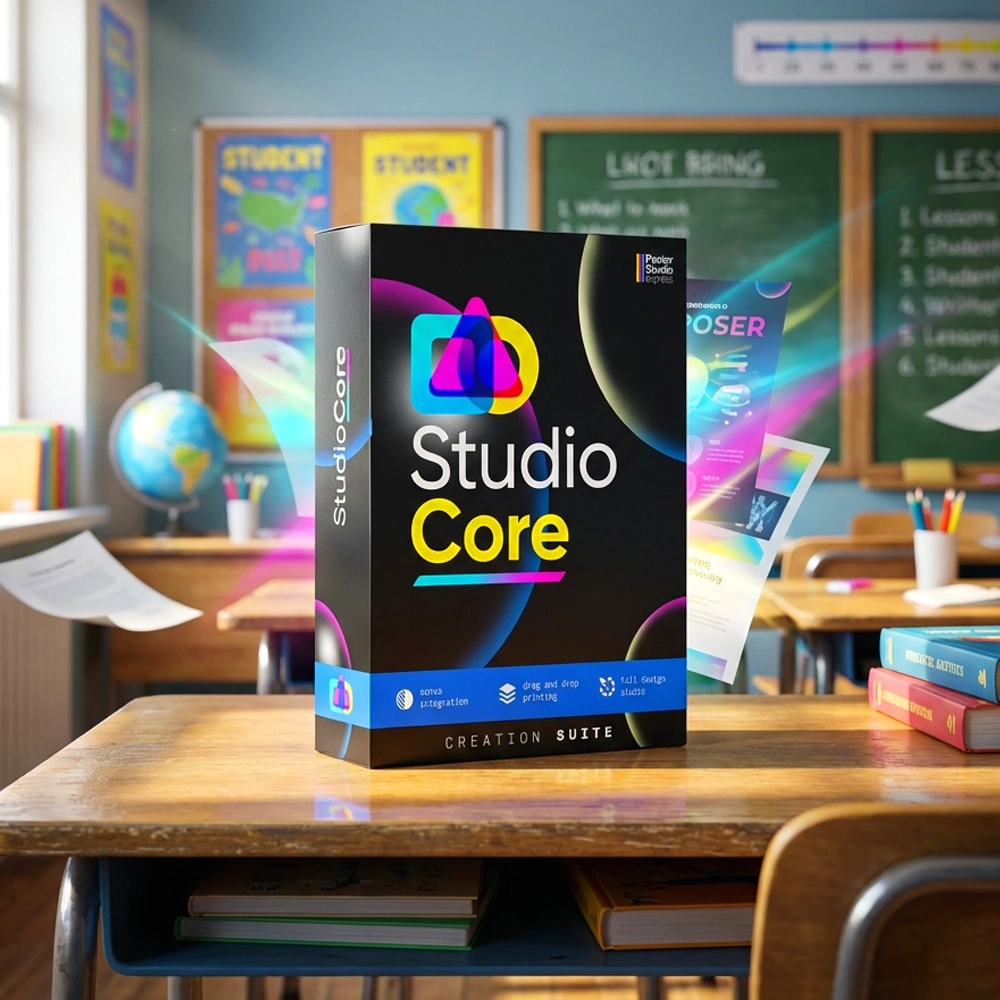
Regional History Fair Success with School Poster Makers
Every spring, thousands of middle and high school students across the Southeast gear up for regional history fairs, hoping to advance to National History Day. Having guided countless California districts through similar academic competitions, I’ve seen firsthand how the right visual presentation can elevate a solid research project into a winning entry. That’s where poster maker machines for history fairs become game-changers—transforming dense document analysis into compelling visual narratives that judges remember long after the fair ends.
Why Visual DBQ Displays Win Competitions
Document-Based Questions (DBQs) form the backbone of serious historical inquiry. Yet when students present their findings on traditional tri-fold boards with handwritten captions and photocopied images, their hard work often gets lost in the visual noise. Modern poster printers machines for schools change this dynamic entirely. Students can now integrate high-resolution primary sources, create professional layouts, and produce museum-quality displays that match the caliber of their research.
Southeast Regional Topics That Shine
From Birmingham’s Freedom Riders to Charleston’s colonial trade networks, the Southeast offers rich historical narratives perfect for poster-based presentations.

Mastering Poster Maker Machines for History Fairs
California’s framework for historical thinking aligns perfectly with National History Day’s emphasis on primary source analysis. When students use poster maker machines to create their displays, they’re not just printing—they’re curating historical evidence. The Education Express 36 Poster Printer allows students to reproduce Civil War-era photographs at actual size, making viewers feel the weight of history.
Civil Rights Movement Locations
Southeast students have unparalleled access to Civil Rights landmarks. Consider these powerful local topics:
Montgomery Bus Boycott
Visual Evidence
Rosa Parks arrest records and bus seating diagramsBirmingham Campaign
Primary Sources
Connor’s fire hoses photos and King’s jail letterWith professional printing capabilities, students transform these documents into powerful 24″ x 36″ displays. The Lifetime Design Service helps students layout their findings with proper historical context, ensuring academic integrity while maximizing visual impact.
Colonial Settlements and State Foundations
Beyond the Civil Rights era, Southeast states offer compelling colonial and early American narratives. Students examining Jamestown’s “starving time” or Charleston’s role in the triangular trade need to present complex economic data alongside personal accounts. This multi-layered storytelling requires sophisticated visual tools.
The Education Flex 30 Package B excels at creating timeline displays with integrated maps. Students can print colonial-era cartography at scale, then use the built-in cutter to create layered presentations showing territorial expansion over time. This dimensional approach helps judges understand causation and continuity—two critical historical thinking skills.
Turning Historical Turning Points into Visual Arguments
Every state has watershed moments that changed its trajectory. Professional poster displays help students argue their thesis visually.
Professional Poster Production Strategies
Having overseen hundreds of student projects, I’ve identified key strategies that separate regional winners from participants. Success starts with understanding how poster printers machines for schools can enhance—not replace—solid historical research.
Design Templates for DBQ Success
The cost per print for a competition-quality poster runs about $1.50—far less than professional printing services. This affordability lets students iterate their designs, testing different layouts until they find the perfect visual argument. Our demo video shows exactly how students can go from rough draft to polished presentation in under an hour.
Implementation Timeline for History Fair Success
Technical Tips for Competition-Ready Posters
After three decades helping California schools navigate academic standards, I’ve learned that technical excellence matters as much as content quality. Here’s my checklist for history fair poster perfection:
Resolution Requirements
Historical photographs need 300 DPI minimum for clear reproduction. The Coated Poster Paper captures fine details in century-old documents, ensuring judges can read handwritten letters and faded newspaper clippings. Students should scan primary sources at highest quality, then let the poster maker machines handle the enlargement.
Color Accuracy Standards
Period photographs require careful color calibration. Sepia tones should feel authentic, not artificially aged. Maps need consistent color coding across multiple panels. Our poster printers machines for schools maintain color fidelity from screen to print, eliminating the guesswork.
Layout Best Practices
Follow the “Z-pattern” reading flow: viewers’ eyes naturally move left-to-right, then down diagonally. Place your thesis statement top-left, supporting evidence across the middle, and conclusions bottom-right. White space isn’t wasted space—it helps important elements breathe.
Typography Guidelines
Headers need 72-point minimum for readability at judging distance. Body text should stay above 24-point. Choose fonts that match your era: serif for colonial topics, sans-serif for modern history. Avoid decorative fonts that sacrifice clarity for style.
Real Success Stories from Poster Maker Machines for History Fairs
Last year, a Birmingham middle school invested in poster printing equipment specifically for their history department. Within months, their regional fair participation tripled. Students who previously struggled with artistic limitations could finally showcase their research professionally. One eighth-grader’s poster on the Freedom Riders—featuring life-sized portraits of John Lewis and Diane Nash—won Best in Show and advanced to nationals.
Another compelling example comes from coastal Georgia, where students studying Gullah Geechee culture created stunning visual narratives. Using the school’s poster maker, they reproduced sweetgrass basket patterns at actual size, paired with oral history transcripts. Judges praised the authentic representation of material culture—something impossible with standard presentation boards.
Ready to Take Your History Fair Program To The Next Level?
Give your students the tools they need to bring history to life. Professional poster printing transforms good research into unforgettable presentations.
Final Thoughts on History Fair Excellence
Throughout my career guiding California districts through educational initiatives, I’ve witnessed countless transformations when schools invest in proper presentation tools. History fairs represent more than competitions—they’re opportunities for students to engage deeply with the past while developing critical thinking skills that last a lifetime.
When schools provide poster maker machines for history fairs, they’re not just upgrading equipment. They’re democratizing excellence, ensuring every student—regardless of artistic ability or family resources—can present their historical arguments with professional polish. The Southeast’s rich historical tapestry deserves nothing less than museum-quality presentation, and today’s educational technology makes that standard achievable for every participating student.
Remember: great history fair projects start with thorough research and thoughtful analysis. Professional poster printing simply ensures that excellent scholarship receives the visual platform it deserves. Your students have important historical stories to tell—give them the tools to tell those stories powerfully.







